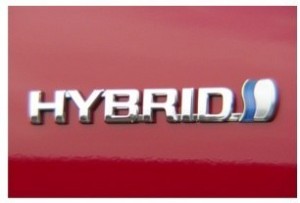Important Hybrid Car Buying Tips
To simplify your decision-making process, let us guide you through the key differences among various hybrid technologies and when hybrid ownership makes the most sense. Whether you’re looking for a mild hybrid, a self-charging option, or a plug-in hybrid, each type has its own unique advantages and trade-offs. Today’s market offers several hybrid options, each designed to cater to different driving habits and preferences. If you’re unsure which hybrid you own, check your vehicle’s owner’s manual. Here are the three main types you’ll encounter: Selecting the appropriate hybrid vehicle depends largely on your specific needs and driving patterns. For families seeking ample space, the Toyota RAV4 offers both practicality and versatility in either PHEV or self-charging configurations. Meanwhile, the spacious Toyota Sienna accommodates up to eight passengers if you require additional seating capacity. For urban dwellers or those prioritizing fuel economy, compact models like the Toyota Prius or Corolla could be ideal. These hybrids deliver impressive mileage figures while maintaining a sporty aesthetic. Additionally, other Toyota hybrids such as the Camry, Crown, and Highlander cater to diverse tastes and requirements. Although hybrids tend to carry a premium over conventional gasoline models, the investment often pays off in the form of reduced fuel expenses. Take the Toyota Corolla, for instance; its hybrid variant costs approximately $1,250 more than the standard model yet achieves up to 50 mpg in combined driving conditions. By comparison, the regular Corolla manages only 35 mpg. Over time, this translates into significant savings at the pump. In urban environments where short trips dominate, the disparity becomes even starker. The hybrid achieves 53 mpg versus the 32 mpg offered by its non-hybrid counterpart. Plug-in hybrids represent the pinnacle of fuel efficiency but come with a higher upfront cost. Full hybrids fall somewhere in between, providing moderate savings alongside shorter electric-only ranges. All Toyota hybrids manufactured since 2020 enjoy a comprehensive 10-year/150,000-mile warranty covering the hybrid battery system. Models produced prior to this period retain an equally robust 8-year/100,000-mile guarantee. Despite initial concerns about longevity, Toyota hybrids have proven themselves as reliable as their gasoline-powered siblings. Nevertheless, certain models might incur higher servicing fees due to specialized components. Research thoroughly before committing to purchase. Used Toyota vehicles certified by the manufacturer also benefit from extended warranties and optional maintenance packages. Should you ever require genuine OEM parts, Olathe Toyota Parts Center stands ready to assist. Our selection of authentic Toyota parts carries the standard 12-month, unlimited-mileage warranty. Hybrid vehicles prove particularly advantageous under certain circumstances: Hybrids generally outperform traditional gas-powered cars in everyday driving scenarios. Toyota hybrids, in particular, stand out for their smooth operation, rapid responsiveness, and exceptional fuel economy—even older iterations maintain commendable efficiency levels. Should you ever need replacement parts for your hybrid Toyota, Olathe Toyota remains accessible via telephone. With over 15 years of online sales expertise and extensive inventories of OEM Toyota components, we ensure your vehicle continues operating smoothly for years to come.  Ultimately, transitioning to a hybrid vehicle represents a forward-thinking approach toward sustainable mobility. By combining cutting-edge technology with proven reliability, Toyota continues leading the way in creating eco-conscious transportation solutions. As always, feel free to reach out to us anytime regarding your hybrid-related queries—we’re here to help! Black carbon N550, N550 carbon black,furnace black n550 Henan Chuange Industry CO.,LTD , https://www.chuangegroup.com Hybrid vehicles, whether cars or SUVs, strike a perfect balance between fuel efficiency and performance. Many drivers are drawn to hybrids as their next car because they promise a greener future without sacrificing speed or comfort. However, with such a wide variety of hybrid models available, choosing the right one can feel overwhelming.
Hybrid vehicles, whether cars or SUVs, strike a perfect balance between fuel efficiency and performance. Many drivers are drawn to hybrids as their next car because they promise a greener future without sacrificing speed or comfort. However, with such a wide variety of hybrid models available, choosing the right one can feel overwhelming.Types of Hybrid Vehicles
Choosing the Right Hybrid for Your Lifestyle
Comparing Fuel Efficiency Across Models
Warranties and Maintenance Considerations
When Does Owning a Hybrid Make Sense?
Related Articles
 Is A Plug-In Car Right For You?
Is A Plug-In Car Right For You?
 The Top 5 Green Driving Tips
The Top 5 Green Driving Tips
 Are Electric Vehicles The Future?
Are Electric Vehicles The Future?
 Scion iQ Micro-Subcompact
Scion iQ Micro-Subcompact
 2011 Toyota Prius Ships To Select Cities And Businesses
2011 Toyota Prius Ships To Select Cities And Businesses
 Our Favorite 2013 Toyota Models
Our Favorite 2013 Toyota Models